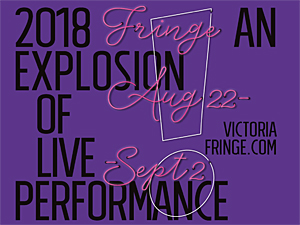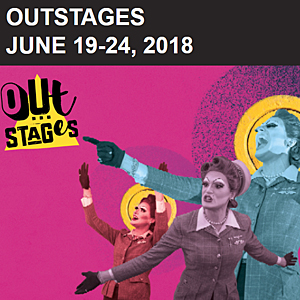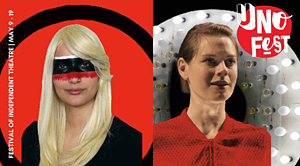This past weekend July 10 and 11th, in Victoria BC, Kris Constable hosted Idea Wave, a conference of ideas. Over 2 days, 50 people (25 a day) presented 10 minute talks on their ideas. They ranged from “It’s Nursing for the Future Trans-Humanists”by Sarah Novotny, to“Taking Charge of Your Health:Maintaining Your Personal Health Record” by Cheryl Upright and “The Cost of Convenience” by Janice Mansfield.
Kris sollicited submissions by asking for ideas – “big and small”. I’d already given him a run down of my idea at the #victoriatweetup afterVictoria Word Camp in May, but I was very hesitant to present before a crowd of people. It was as Sasan Aghdasi stated in “Ideas Are Like Crushes” – was I ready to be in a serious relationship with my idea?
But I wouldn’t want to miss Idea Wave for anything. Kris was one of my first in-person contacts after joining Twitter in the spring of 2009. I was intrigued with Ideas Victoria meetings, and the ability to discuss ideas with other people who liked talking about ideas. The conversations were more than lively at the meetings I attended (every Wednesday at the Canadian Pacific Lawn Bowling Club behind the Crytal Gardens).
Besides, Idea City in Toronto, and TED were beyond reach financially. What did it matter that it was a summer weekend and the Organic Islands Festival and SkaFest were scheduled?
Here’s the transcript of my idea. It is a “small” idea with large implications. I invite your comments.
*********************************************
I’d like to thank Kris for conceiving Idea Wave, and congratulate you for attending.
You know you’re in the right room when ideas include game theory and respect, fuzzy logic and human exo-skeletons, and human flocking behaviour.
Are there any mathematicians in the room (with apologies to any mathematicians in the room)?
Any math phobes – please don’t shut down – you will understand, I promise.
Your participation at this conference is key to its success and today, I’m going to explain why.
There is, I find, in today’s society, a two pronged push to minimize the importance of the individual. On one hand, we have the external push of outside information and media; the sheer volumes of numbers would seem to indicate to us that, in the great sea of humanity, we, are relatively unimportant.
On the other hand, our own apathy, distraction, procrastination and general laziness provide us with the handy excuse “just this once, I don’t need to attend.” “What will it matter if I come late?”
Well – a lot, as I’m going to demonstrate today.
If you’ve read the website, you’ll see that I’m described as a community builder, passionate about bridging online and offline communities to effect positive social change. In the context of Malcolm Gladwell’s book, The Tipping Point – I’d fall somewhere between being a Connector and a Maven. And I’ll touch very briefly on Gladwell later in this talk. However, for the purposes of this discussion – I am more importantly a widow.
Up until June 5 2001 our small family included 4 members, myself – Janis, my husband of 20+ years, Yves, and our two teenaged sons – Christopher and Elliott. We were a tight knit family who enjoyed spending time together.
Then – Yves died. Christopher Elliott and I were devastated – naturally. However, as time passed, we became increasingly puzzled by the deep sense of loss we felt. Why was it that our relationships seemed deeply diminished?
Beyond the obvious emotional and family systems answers, I knew there had to be a logical answer, even a mathematical one. But trust me; this is not something you discuss with most people – for it seems oddly dispassionate.
So – I put it to the back of my mind – have you ever done that – allowed your subconscious mind to provide you with an answer? Waited for the AHA moment? Some people find answers in walking, running, washing dishes, gardening – for me it’s driving – that semi rote behaviour. And there I was – at the Four Way – Tillicum and Craigflower when it came to me!
Set Theory – the answer was in Set Theory.
Set theory is the branch of mathematics that studies sets, which are collections of objects.
In our set there were four family members and the relationships between the members of the set are as follows.
These were our relationships:
Janis, Yves, Christopher, Elliott (everyone)
Janis Yves Christopher Elliott (singles)
Janis Yves Janis Christopher Janis Elliott
Yves Christopher Yves Elliott Christopher Elliott (duos)
Janis Yves Christopher Janis Yves Elliott
Janis Christopher Elliott Yves Christopher Elliott (triplettes)
The empty set – which of course works in a clean mathematical sense, but not in a human relationships sense.
The total number of relationships is 16.
Now – reduce that set to three and you have!
Janis Christopher Elliott (everyone)
Janis Christopher Elliott (singles)
Janis Christopher Janis Elliott Christopher Elliott (duos)
The empty set
The total number of relationships is now 8!
Losing one member of our family of 4 reduced our relationships by half, not by 25%. No wonder we felt the gaping hole….
Why????
The explanation is in Set Theory and the idea of the Power Set.
In mathematics, given a set S, the power set of S, written , P(S), ?(S) or 2S, is the set of all subsets of S, including the empty set and S itself.
If S is a finite set with |S| = n elements, then the power set of S contains 2n elements.
And I realized! In any given group of people by reducing the number by one – you reduced the number of relationships by half and conversely by adding one person you DOUBLED the number of relationships in the room.
2 to the power of 4 = 16
2 to the power of 3 = 8
2 to the power of 5 = 32
With a group of 10 people, you already have 1024 relationships!
2 to the power of 20 is over a million relationships, 1 048 576
2 to the power of 30 = 1 073 741 824 = 1B
2 to the power of 40 = 1 099 511 627 776 = 1000 B
The world’s population is only 6.8 B
And then I considered the notion of Dunbar’s number = 150 which was made popular in Malcolm Gladwell’s book “the Tipping Point”
2 to the power of 150 = 1.42724769 ×1045
That’s a lot of relationships!
Dunbar is an anthropologist at the University College of London, who wrote a paper on Co-Evolution Of Neocortex Size, Group Size And Language In Humans where he hypothesizes:
… there is a cognitive limit to the number of individuals with whom any one person can maintain stable relationships, that this limit is a direct function of relative neocortex size, and that this in turn limits group size … the limit imposed by neocortical processing capacity is simply on the number of individuals with whom a stable inter-personal relationship can be maintained.
http://www.lifewithalacrity.com/2004/03/the_dunbar_numb.html
And then I got to thinking about other relationships – about catalysts, and synergy.
How we often justify or minimize our lack of participation in an event with “but just this once it’s not going to matter if I don’t come to that open house, march, volunteer appreciation, festival, show.”
But it does, oh it does – every time you walk into a room – you have just doubled the number of all possible relationships in that room. Is it any wonder some people seem to light a room up and make the party explode? That performers complain of a “dead” audience?





Speak Your Mind